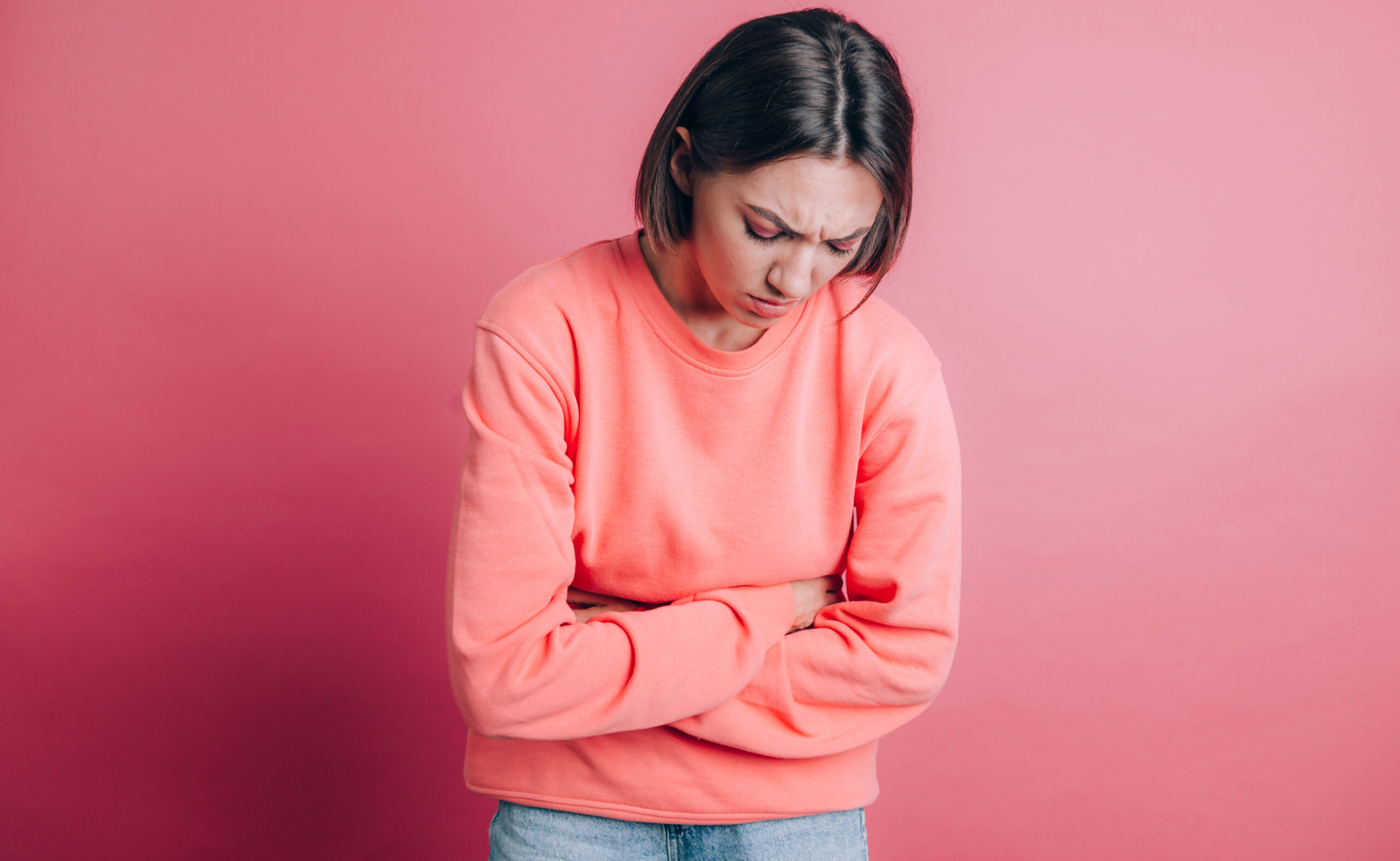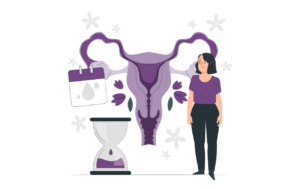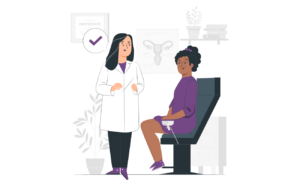Understanding Endometriosis and Polycystic Ovarian Syndrome

PCOS (polycystic ovarian syndrome) and endometriosis share some symptoms and both can cause infertility, but they’re unique health issues that are diagnosed and treated differently. If you have any questions about PCOS, endometriosis, or another health issue, CDPHP and Ovia Health* can help.
What is PCOS?
A syndrome is a group of symptoms that generally occur together. PCOS is considered a syndrome because while it has common symptoms, the specific symptoms someone might notice range from person to person. This can also make PCOS difficult to diagnose.
What are some common PCOS symptoms?
- Irregular periods
- Excess facial and body hair
- Weight gain
- Acne
- Pattern baldness
- Skin tags
- Infertility
How do you get diagnosed?

PCOS is diagnosed by meeting two of the three following criteria:
- High levels of male androgens (hormones) in the female body
- Multiple cysts on the ovaries detected through an ultrasound
- Irregular periods or lack of menstrual cycles
What do you do if you suspect you have PCOS?
If you have two or more of the symptoms above, it may be a good idea to check in with your primary care or women’s health care provider and get a proper evaluation — and potentially a diagnosis. CDPHP can help you find a provider you trust. Try Find-A-Doc to search for providers in your area. You can also message an Ovia Health coach through your Ovia app — they’ll also be able to support you through this journey.
Why is it such a concern?
Many people don’t think of PCOS as a problem until they start trying to conceive. But PCOS can affect a lot more than your reproductive life. Having PCOS can put you at higher risk of certain conditions, including, type 2 diabetes, high blood pressure, heart conditions, and certain types of cancer. But with proper management, it’s possible to mitigate those risks.
What can you do today if you’ve been diagnosed?
The good news is that there are several actions you can take to help manage PCOS.
Exercise
The best type of exercise is the one that you’ll do! The exact type of exercise seems to be far less important than how regularly you’re doing it — so find something you enjoy and keep at it. Around 150 minutes of exercise a week is typically recommended.
Adjust your diet

Reducing the amount of simple carbohydrates and sugars in the diet can be incredibly helpful. Also, because PCOS is so often linked to insulin-resistance, learning to manage your blood sugars and keeping them more stable can make a difference. If you’re looking for some help on starting a nutrient dense and PCOS friendly diet, the Ovia Care Team is here to help. Message an Ovia health coach through your Ovia apps to learn more.
Some research indicates that eating meals in a particular order (veggies, then protein, then carbs) can lead to more stable sugars. Going on a short walk after a meal can also help with stabilizing sugars.
Improve your sleep
Poor sleep can contribute to increased insulin resistance, so getting better sleep can help with PCOS management. To practice good sleep hygiene, try these tips:
- Sleep in a cool, dark room
- Go to sleep and wake up at the same time each day
- Avoid screens or blue light exposure in the few hours before bed
What is endometriosis?
Endometriosis is a condition that causes tissue that should grow within the uterus — called endometrial tissue — to grow outside of the uterus. This can cause inflammation and severe pain.
What are the symptoms of endometriosis?
The main symptoms of endometriosis are painful menstrual cramps and/or pain during intercourse. Other possible symptoms can include:
- Diarrhea or constipation that’s worse during your period
- Heavy and/or irregular periods
- Bleeding/spotting in between periods
- Pain with urination or bowel movements, especially while on your period
How do you get diagnosed?
It can take a long time for a diagnosis. The average time it takes for someone to be diagnosed with endometriosis is 7-10 years.
Many women report that their providers dismiss pain as “normal.” But severe pain is not normal, and though you shouldn’t have to, sometimes you’ll need to act as your own advocate to get the answers you deserve. If you’ve brought up these symptoms to your provider and you didn’t feel heard, it might be time to look for someone new. Your Ovia Care Team can help you understand the qualities to look for in a new provider.
While some imaging tests, like ultrasound or MRIs, can help identify the possibility of endometriosis, it can only be definitively diagnosed through laparoscopic surgery to visualize the tissue growing outside of the uterus. This is another reason why a diagnosis can take so long to achieve.
Who should you see if you think you have endometriosis?
You can start with your primary care provider, but it’s often a good idea to find a women’s health care provider such as a gynecologist.
What can you do today to help if you’ve been diagnosed?
There is still a lot we do not know about endometriosis, but there are lifestyle changes that may help including:
- Limiting inflammatory foods (like simple carbs, red meat, soda, and fried foods). Because endometriosis can cause chronic inflammation, decreasing exposure to inflammatory foods can help.
- Exercise. Higher estrogen levels are thought to contribute to the spread of endometriosis, so managing estrogen levels can help. Regular exercise can decrease estrogen levels and alleviate endometriosis symptoms.
- Decrease or eliminate alcohol consumption. Excess alcohol consumption can increase estrogen levels and worsen endometriosis symptoms.
Living with PCOS or endometriosis can be incredibly challenging. If you feel like your symptoms are stopping you from enjoying your life, it might be time to speak with a therapist in addition to seeking care from your women’s health care provider or primary care provider. Your Ovia Care Team is available for free seven days a week and can help you understand your options when it comes to finding a therapist in your area. You also have mental health support available to you as a CDPHP member. Learn more about your options.
*The Ovia Health apps (Ovia and Ovia Parenting) are available at no-cost through the Apple and Android app store. Eligible CDPHP members also have access to premium features such as the Ovia Care Team, which can be accessed selecting that you have Ovia Health as a benefit during signup and entering CDPHP. Learn more about Ovia Health.
 The Daily Dose
The Daily Dose
Comments are closed.